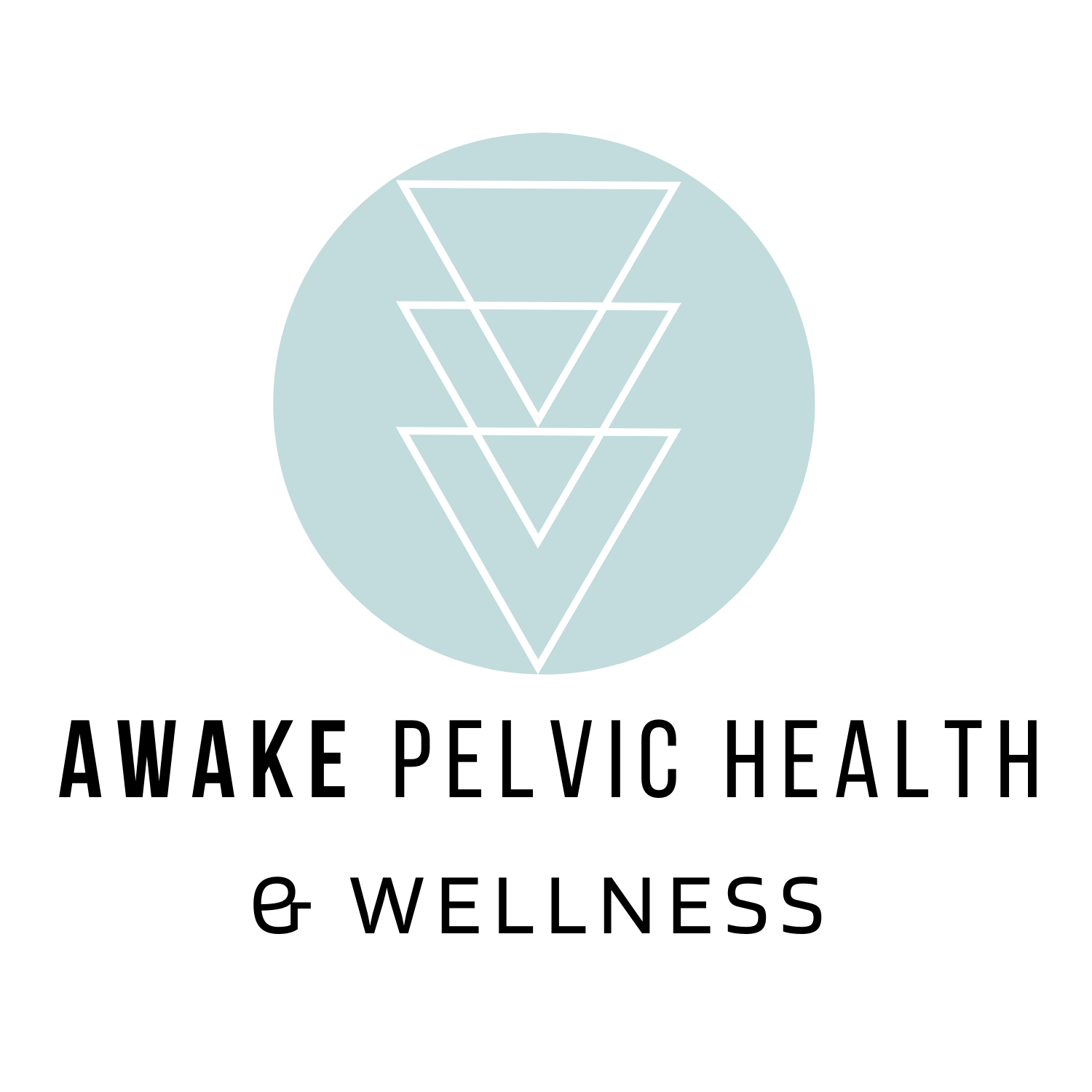Monthly Knowledge Drop
Each month we'll share answers to some of our favorite questions you've submitted via email and Instagram!
To submit a question for next month, email us at hannah@awakepelvichealth.com or message us on Instagram @awake.pelvichealth.
Questions You Asked this Month
**The answers to these questions are not meant to be taken as medical advice. These answers are not meant to take the place of a skilled physical therapist or discussion with your medical provider. If you are experiencing concerning symptoms, please contact your physician.**
When is the best time to see a Pelvic Floor PT when I’m pregnant?
If you are having any type of pain, such as back pain, hip pain, neck pain, etc. see a PT now! Going to physical therapy while you are pregnant is not only safe, but extremely effective in helping you resolve pain and stay healthy and active. Staying active and pain-free during your pregnancy can significantly help you during your labor and delivery, as well as healing into postpartum!
If you are feeling GREAT and not having any aches or pains, we recommend seeing a Pelvic Health PT around 20-25 weeks of pregnancy. During this visit we go over: getting a baseline assessment of your pelvic health and how it may impact your pregnancy, birth and postpartum recovery, anatomy of your pelvis + pelvic floor and how it changes during pregnancy, how your pelvic floor functions during delivery, exercises and movement practices to support your body and pelvic floor during the rest of your pregnancy, and thorough screen and assessment of your body’s strength and range of motion.
From there, we recommend doing a Prep for Birth Visit with us around weeks 34-35 of pregnancy. This is a 90 minute visited dedicated to you and your birth partner (if you choose) to go through: how to reduce your risk of and severity of tearing, breathing and core exercise strategies to improve pushing, pelvic floor relaxation practice to prep your tissues for delivery, appropriate expectations for your bladder, bowel and sexual health postpartum, and timelines and realistic expectations for safely returning to exercise postpartum. Read our blog post all about Prep for Birth Visits.
I have hemorrhoids, what can I do to prevent and heal them?
Hemorrhoids are definitely NO fun and can be painful and/or itchy. There can be a variety of reasons for hemorrhoids including pressure from pregnant or child birth, tension in the pelvic floor muscles, straining on the toilet, straining with weightlifting, and constipation. A pelvic floor PT can provide you with an in-depth and detailed treatment program to help your specific symptoms. In some cases, an internal pelvic floor muscle assessment is very helpful to address tension in the pelvic floor muscles and can be exacerbating your hemorrhoids. Here are some ideas that can help you care for hemorrhoids:
*Use a Squatty Potty and optimal positioning when sitting on the toilet
*Don’t strain when you have a bowel movement, think about exhaling your breath when you push
*Hemorrhoidal cream, like preparation H
*Ice can help with the swelling
*Don’t wear thong underwear! It can irritate the anal region
*Manage constipation - this is a big one, constant pushing/straining can exacerbate hemorrhoids. A magnesium supplement, increasing fiber, and working with a dietician or functional nutritionist can really help.
*Sitz bath
*Pelvic floor stretches and deep breathing
I’ve had pain with sex for several years, I’ve seen doctors and a couple specialists, and no luck. How can Pelvic Floor PT help?
There are a variety of causes and reasons that one may have pain with sex. Painful sex is common but NOT normal and it can be resolved! Sometimes we just need to dive a little deeper and take a different approach. The muscles of your pelvic floor play a huge role when it comes to having sex. If the muscles around your vaginal opening or your deeper pelvic floor are too tight or tense they can make penetration or deep thrusting painful. In pelvic PT we use different manual therapy techniques, stretches, and tools to help your muscles relax and have less tension. Often, there may be muscular or connective tissue tension in muscles and areas around your pelvic floor such as your hips, glutes, and abdomen, that are contributing to your pain. We treat all of this is pelvic floor physical therapy.
Sometimes pain can be due to a hormonal issues or lack of estrogen at the vagina. There are ways that we test for this and work with your physician to get the right treatment for you. In addition, there can be past trauma or emotional challenges that accompany painful sex, and as your physical therapist we help you navigate through these challenges and may refer you to a mental health therapist that specializes in these areas. It’s all about a holistic and mind/body/soul approach!
Thanks so much for reading this month's knowledge drop! Don't forget to submit your questions for next month at hannah@awakpelvichealth.com
Ready to take control of your pelvic health? Contact us here or call us at 651-432-0250 for a free phone consultation to learn more about how pelvic floor PT can help you.


